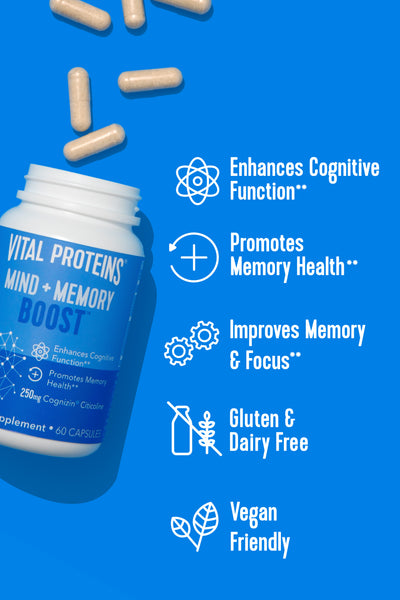The brain is no doubt an amazing part of the body. It stores our precious memories, coordinates all kinds of movements, from chopping veggies to completing a challenging workout, and solves those tricky sudoku puzzles. It's easy to take these powers for granted as we go about our daily lives, however, as we get older, small lapses in memory and other cognitive functions may become more common. Fortunately, there are simple steps you can regularly take to boost your brain health and keep your mind sharp. Keep scrolling to learn more.
1. Move your body
Regular exercise offers a number of substantial benefits — from preserving muscle strength to keeping your heart strong — but research has also pointed to its ability to boost your memory and thinking skills. For example, this study looked at the effects of Tai Chi on cognitive function in older adults and revealed that it has the potential to enhance brain function, especially in the realm of executive functioning which manages key cognitive processes such as planning, working memory, attention, problem solving, task switching and verbal reasoning. It's not like we needed another good reason to lace up and chase those endorphins, but we'll take it!

2. Eat for your mind
Another simple way to foster brain health is to chow down on certain kinds of nutritious foods. Look for options rich in omega-3 fatty acids which can be found in items like oily fish (i.e. mackerel or salmon), spinach, kale, flaxseeds and walnuts. In this notable five-year observational study, researchers revealed that eating a meal of seafood or other foods containing omega-3 fatty acids at least once a week may protect against age-related memory loss and thinking problems in older adults. Berries have also been shown to improve brain power and memory — this 2019 study demonstrated that participants (aged 20-30 years old) who drank a smoothie containing whole strawberries, blueberries, blackberries and raspberries ended up having a boost in accuracy and response time on various tests over a six-hour window. Other foods that do right by your mind include broccoli, avocados, eggs, dark chocolate and turmeric.**
3. Socialize
Research has suggested that even just sitting around and chatting with family and friends can help keep our brains fit like this study, which highlighted that regardless of age, socializing can be a factor in helping to stave off mental decline. The researchers wrote that "usually it is assumed those activities that work the brain and mind are of a more 'intellectual' and 'technical' nature, such as reading, developing new hobbies, and learning to appreciate new aspects of one’s culture like art and music," and while such activities are undoubtedly important, other needs that are basic to us like staying socially connected can also play a significant role. The mental gymnastics of interacting with others and thinking, laughing, and talking are all ways to help keep your brain strong. It's cool to know that the next time you're gabbing with friends over a cup of coffee, you're not only enjoying yourself, but doing something positive for that wonderful mind of yours, too.

4. Catch plenty of Zzz's
Perhaps you recall pulling an all-nighter for an exam and feeling like a cloud of fog settled over your brain and you couldn't concentrate throughout the day. Well, your brain, just like your body, needs quality zzz's to restore itself and maintain proper balance — a minimum of seven hours sleep seems to be necessary for proper cognitive and behavioral function. Set up good bedtime habits and find calming ways to put the stresses of the day behind you, so you can get high-quality sleep and feel rejuvenated come morning.
5. Learn something new
Building new skills throughout the course of your lifetime, like learning to play an instrument, taking up a new sport, or mastering a different type of cuisine are all ways you can keep your brain healthy by essentially challenging it. In this study, researchers assigned 200 older people to tackle a new activity over the course of three months — some learned digital photography, others took up quilting. After giving participants various memory tests and comparing them to control groups, researchers uncovered that those who learned a new skill showed significant gains in memory function. No time like the present to discover that new language or unfamiliar skill!

6. Take care of your emotions
It’s so easy to get lost on the hamster wheel of overthinking, but it's important to learn how to settle the mind. One way to do this is to regularly practice mindful meditation — it’s not only been shown to reduce anxiety and depression, but can also assist with brain health. This study out of UCLA found that long-term meditators — those who have been meditating for 20 years or longer — had more grey matter volume throughout the brain (grey matter is important for processing information.) We should point out that while older meditators still had some volume loss compared to younger meditators, it wasn't as pronounced as those who didn't meditate at all. If you're new to the practice, there are some great apps out there to help get you started like Calm and Headspace.















